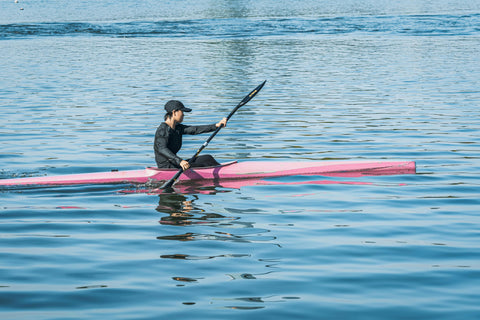
IMPORTANT SWIM SAFETY TIPS FOR CHILDREN
Just like charity, swim safety starts at home! It is not just about teaching your child the best underwater breathing techniques or ideal posture for swimming - it encompasses a lot more.
Essential swim safety tips for children:
Here are some swim safety tips that can serve as guidance notes for having conversations about swim safety with your child:
Adult supervision is a must:
Your kids will tell you that they are capable of taking care of themselves at the beach or you might be tempted to lay down and read a book at the beach - totally understandable.

It's a total no-brainer - do not leave young ones unattended, whether it's in a pool or in open waters. Keep a watchful eye on older kids and keep the young ones in an arm's reach and where you can hear them.
Learn about water rips:
It is crucial to teach your children about how they can identify a water rip and also what to do when they find themselves in a water rip current. Always check for rip currents every time before you enter the water, even if you have been at that beach a number of times earlier.
Just talking about water rips wouldn't suffice; you will need to demonstrate it in open waters. After the initial few times, ask your child to identify a rip and show you what he or she would do if they find themselves in a rip. It is equally important to practically show them how to get out of a rip.
Not all rips are permanent; some can appear temporarily as well. So, keep it in the back of your head to keep yourself and your young ones safe at all times.
Check inflatables before each use:
Inflatable toys can deflate at any time. Just because they have worked before does not mean they will necessarily work this time around as well. Always double-check before using them.

Remember, you will still need to supervise your child actively even when they are wearing inflatable toys, as these things are not foolproof.
A lifejacket is a must in water sports:
Even when the water is calm and your children are experienced in water sports, wearing a life jacket is a must. You definitely don't want your child to become the subject of a story that serves as a caution for others, so always insist on lifejackets at all times.
Use role play:
Water safety is not a one-time conversation that you need to have with your child. It's more about constant reminders and two-way conversation. Ask your child what you should do if you find yourself in a certain situation in water and let them answer. A healthy discussion will help them remember details better.
Swim safety tips won't always work unless you demonstrate things in practice. Kids have a tendency to become impatient when they are being sermonised at the end of the water. It will feel like you are holding them off from the fun they can have in the water. Instead, demonstrate water safety physically a couple of times (as needed), and next time, ask them to show (or tell) you what they will do in a situation.About the Author

Qurat Shahzad
Qurat-ul-Ain is a dedicated writer who likes to write anything and everything.



